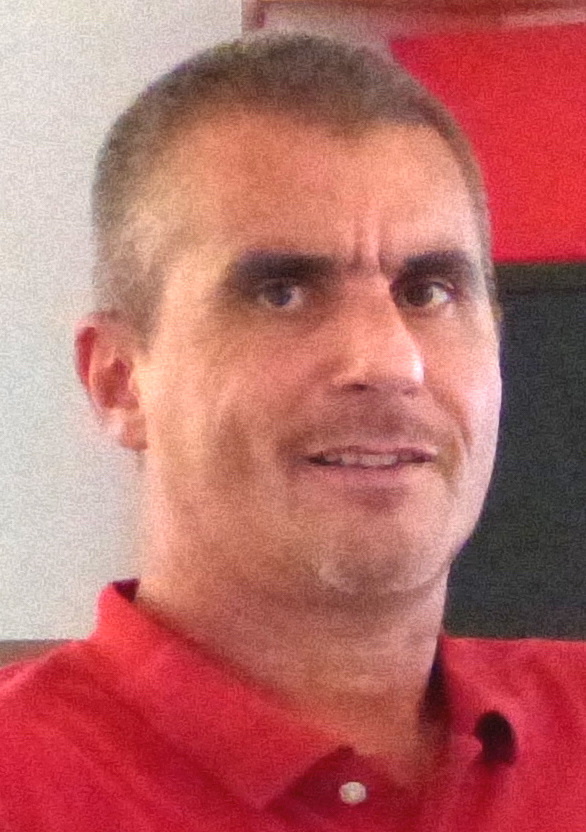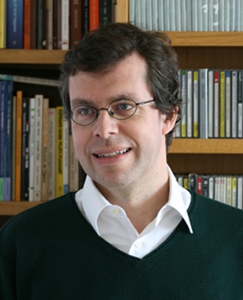| 9:00-10:00 | Opening remarks |
| 10:00-11:30 | Invited Talk 1 (João Luís Sobrinho) |
| 11:30-13:30 | Lunch break |
| 13:30-14:30 | mitiKV: An Inline Mitigator for DDoS Flooding Attacks (PDF) |
| 14:30-15:00 | Coffee break |
| 15:00-16:00 | クラウド環境を指向するライブラリ OS の起動にかかる時間の比較およびその分類 (PDF) |
| 16:00-18:00 | Poster Lightning Talk |
| 18:30- | Conference Dinner |
Internet Conference 2016 Program
Invited Talks
Invited Talk 1
-
Speaker: Luigi Rizzo (Università di Pisa)

- Title: "Why do we need to improve the network stack in today's operating systems ?"
- Links
- [Slides]
- Abstract:
- Network protocol implementation is traditionally confined in the kernel of the operating system, in a subsystem known as the "network stack". Together with device drivers, these subsystems originate from an architecture designed 30 years ago and slowly adapted to the demands of modern systems: very high speed, large core counts, virtualization, encryption and more. Aiming for speed and/or flexibility, many of us have embarked in unconventional revisitations of the architecture, in the process moving features outside the kernel or making (only apparently) large changes to the architecture.
In this talk we will give an overview of limitations of current network stack architectures, discuss recent experiences to improve performance or flexibility, and point out some possibly irrelevant, misleading or dangerous design goals such as zero-copy, userspace networking or polling. We will finally try to identify design principles that let us benefit from recent results with limited disruption to features and code of current architectures.- Biography:
- Luigi Rizzo is a professor at the Università di Pisa. He has worked on network emulation, high performance networking, packet scheduling, multicast and reliable multicast. He is a long time contributor to FreeBSD, for which he has developed several subsystems including the dummynet network emulator, the ipfw firewall, and the netmap framework. He has been program committe member for for sigcomm, conext, infocom, nsdi, Usenix ATC, ANCS and other conferences, as well as PC chair for Sigcomm 2009 and Conext 2014, ANCS 2016, and general chair for Sigcomm 2006. Luigi has been a frequent visiting researcher at various institutions including ICSI/UC Berkeley, Google Mountain View, Intel Research Cambridge, Intel Research Berkeley.
Invited Talk 2
- Speaker: João Luís Sobrinho (University of Lisbon)

- Title: "A unifying view of route protocol behavior through modern algebra"
- Links
- [Slides]
- Abstract:
- Route vector protocols are distributed algorithms to select paths in a network, reacting automatically to changes in topology and configuration. These protocols are pervasive in the current Internet: from inter-domain routing with the Border Gateway Protocol (BGP) to intra-domain routing with Routing Information Protocol (RIP) and Enhanced Interior Gateway Protocol (EIGRP); to the interconnection of routing instances through configuration of Administrative Distance (AD) and Route Redistribution (RR). Route vector protocols scale well and allow for autonomous implementation of routing policies in distinct parts of a network. However, they raise a number of issues, among which: they may fail to terminate (converge) or terminate in states that enclose forwarding loops; they may not find optimal paths; they may hide a destination from some nodes; they may exclude some paths in the network from the possibility of carrying data-packets. Historically, route vector protocols and their configurations have been designed and analyzed case-by-case, a time-consuming enterprise that easily overlooks undesirable behaviors and misses opportunities to share insights across routing paradigms. In this talk, I will present a unifying theory of route vector protocols drawing from elemental algebraic concepts. The algebraic theory contains universal propositions concerning the behavior of route vector protocols and of their configurations, addressing topics such as: termination in loop-free states; optimality of paths; visibility of destinations; limitation on the usable connectivity of a network. I will illustrate the theory with a number of examples, emphasizing the deployment of secure-BGP in the Internet routing system and the scalability of the system through filtering and route aggregation strategies.
- Biography:
- João Luís Sobrinho received the Licenciatura (undergraduate level) and Ph.D. degrees in electrical and computer engineering from the Instituto Superior Técnico, Universidade de Lisboa, Portugal, in 1990 and 1995, respectively. Before joining academia in 1997, he was with Bell Labs, Lucent Technologies, where he was involved in the design and development of a multiple access protocol that provides quality-of-service guarantees over wireless LANs. He is currently an Associate Professor with the Department of Electrical and Computer Engineering, Instituto Superior Técnico, and a Senior Researcher with the Instituto de Telecomunicações. His research interests are on the algorithmic aspects of networking, especially on those that concern the Internet routing protocols. He holds six patents. He won a Best Ph.D. Student Paper Award at PIMRC 1994, the 2006 IEEE Communications Society William R. Bennett Prize, and an 2015 IRTF Applied Networking Research Prize.
2016/10/11: IC 2016 1st day
2016/10/12: IC 2016 2nd day
9:00-10:30 Invited Talk 2 (Luigi Rizzo)10:30-11:30 Poster Session11:30-13:30 Lunch break13:30-14:30 Kamuee Zero: the Design and Implementation of Route Table for High-Performance Software Router (PDF)14:30-15:00 ClosingPoster (10/11 - 12)
- Clustering System Log Messages using Length of Words
- Interactive Cyber Attack Emulation for Facilitating Security Training
- Is 148.88Mpps packet forwarding possible using 100GbE NIC?
- Toward a scalable and distributed monitoring framework in Software-Defined Networks
- OpenFlowを用いたIoTデバイス間連携の支援技術の提案
- Deployement of SRSC forwarding Scheme in NDN
- MPEG2-TSの時刻情報を用いた ライブストリーミングの高精度遅延計測
- Routing on a Quantum Internet